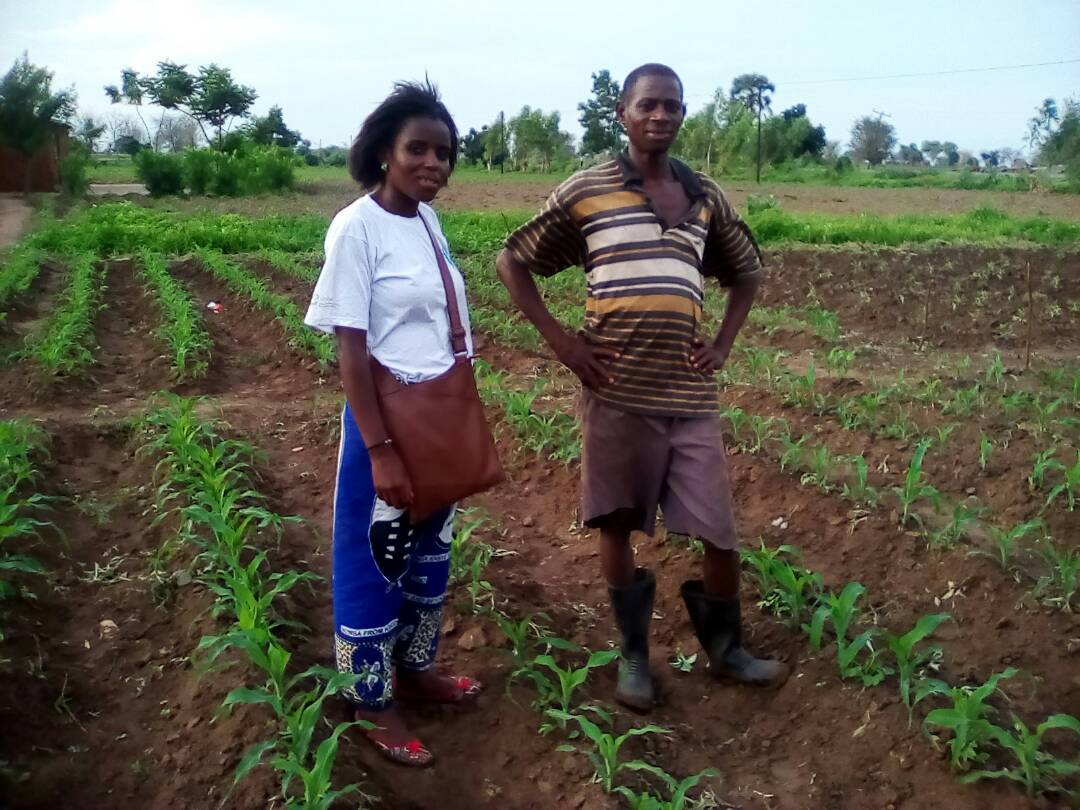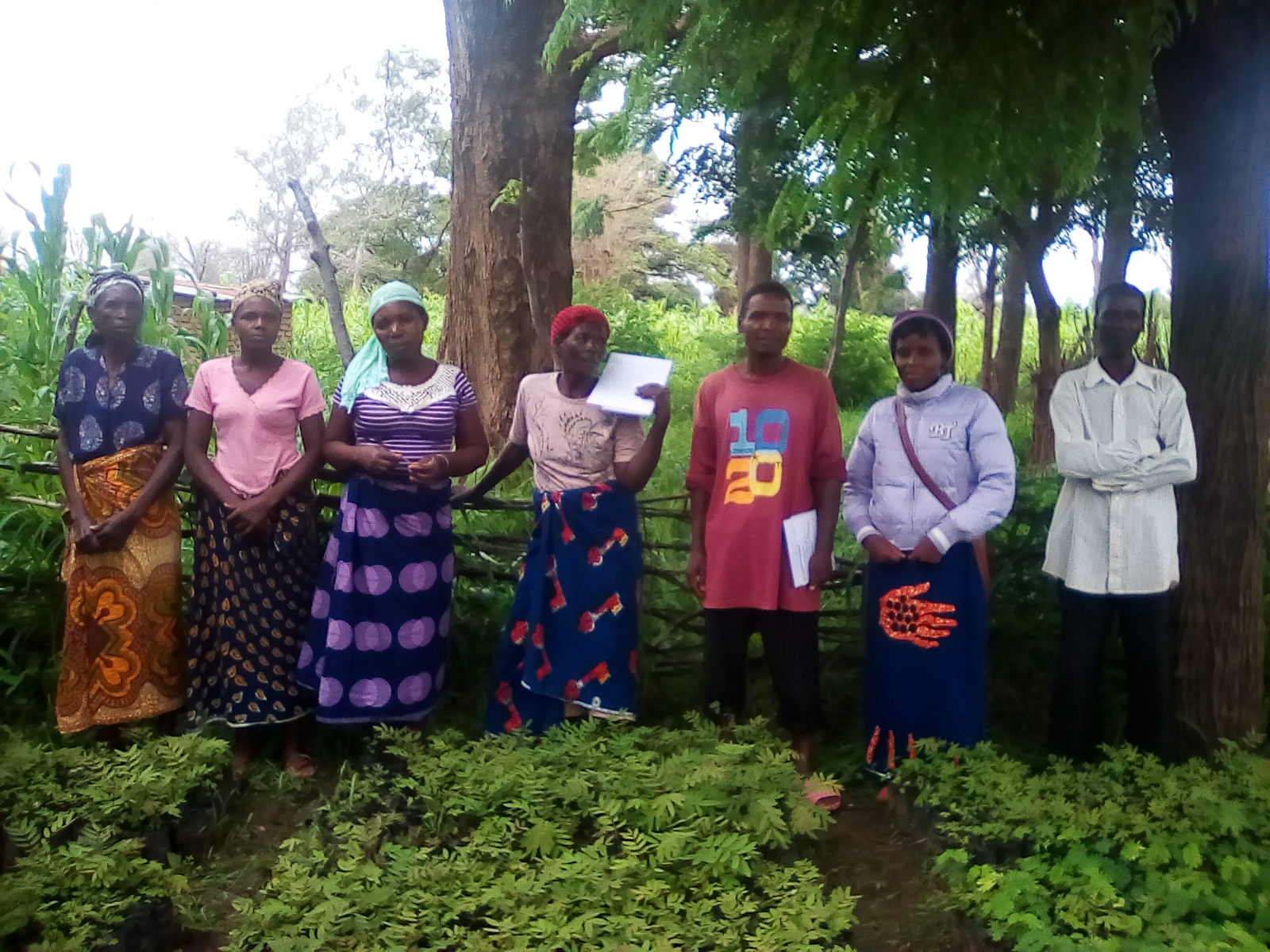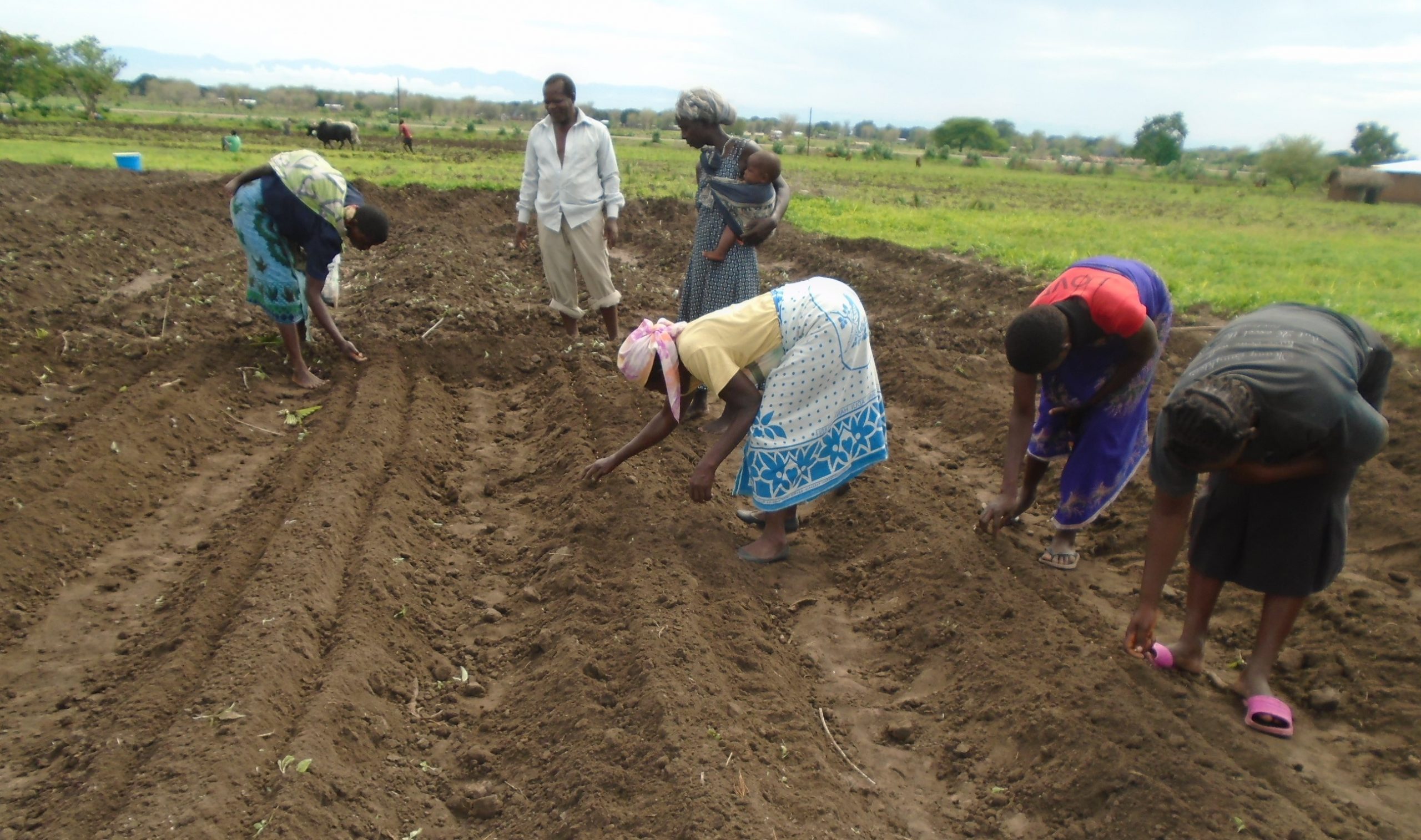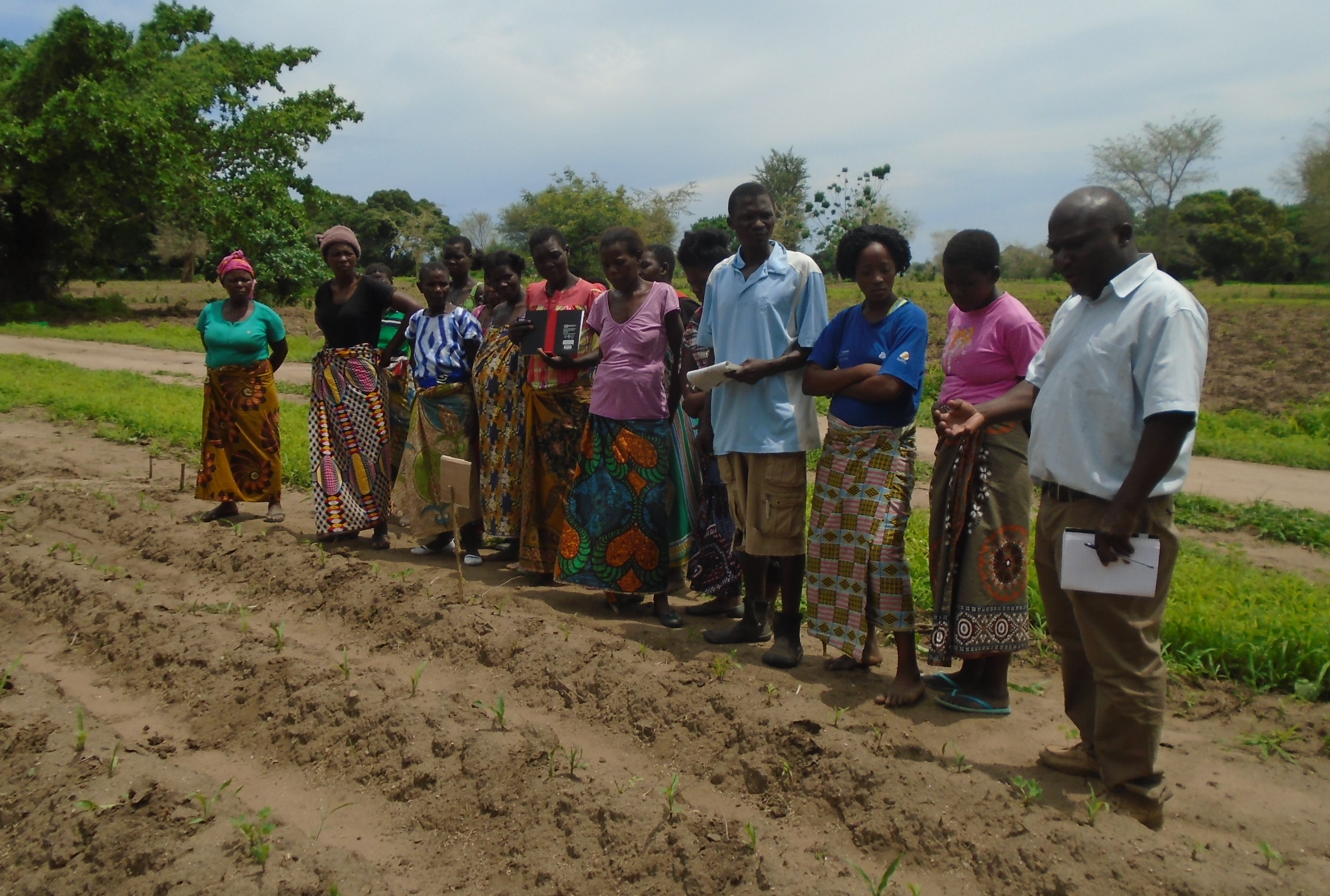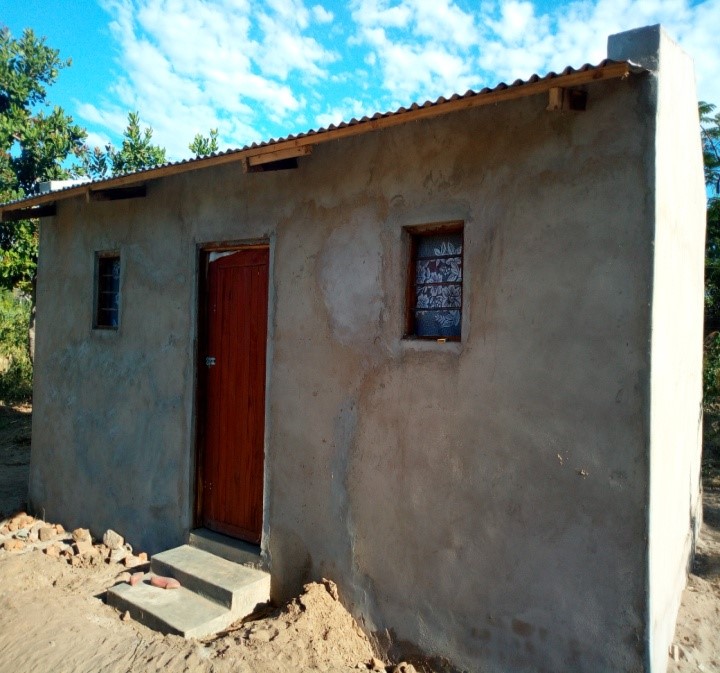The Development Desk Increases Awareness among Small Scale Farmers in Integrated Pest Management (IPM)
By Franklin Msiska
The Development Desk joined the fight against fall army worms and grasshoppers by promoting awareness amongst smallholder farmers in integrated pest management (IPM).
The Desk in January used Radio Tuntufye and some of its 94 demonstration plots mounted under Integrated Rural Development Project to teach farmers on how they can control the outbreak of fall army worms using IPM practices. Both on radio and in the demonstration plots small scale farmers were taught that early detection and proper timing of an insecticide application are critical.
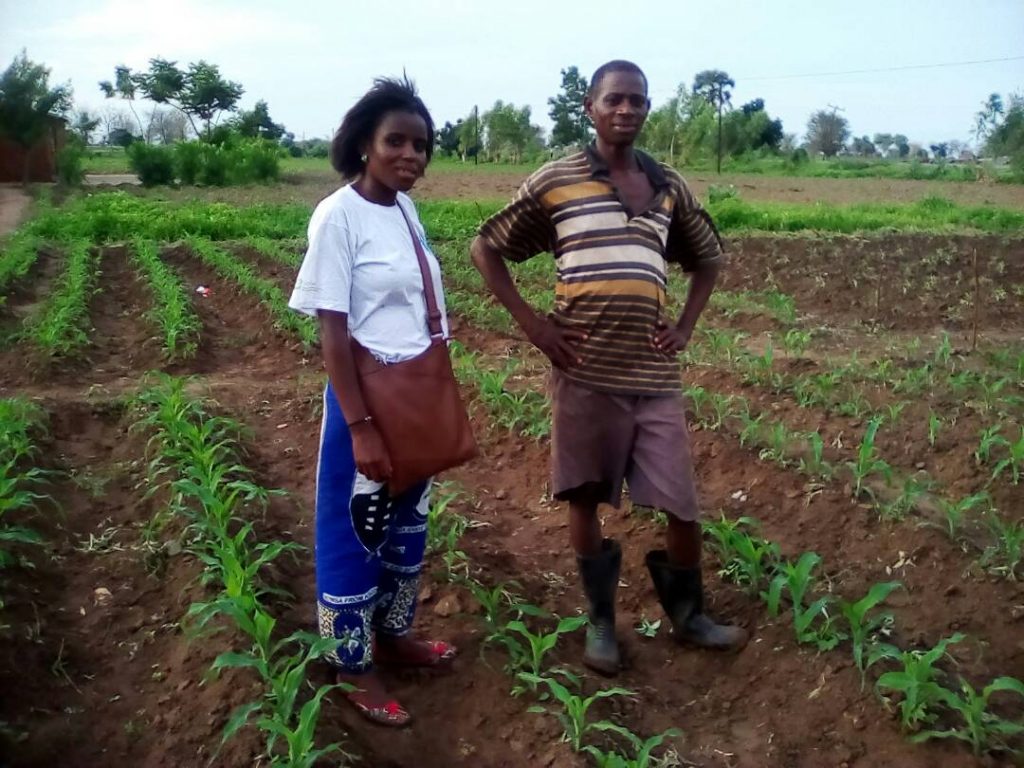
Using the IPM approach farmers are encouraged to use some of the local innovations to control the spread of fall army worms. Some of the local innovations are: physical picking and killing of the worms or squeezing the plant on the whorl in the early stages of plant development, the use of powder from grounded fresh neem tree leaves which is mixed with water or the use of powdered washing soap e.g. surf which is also mixed with water and sprayed directly at the whorl of the maize plant.
Other locally used materials are empty distilled water bottles where farmers just drill a hole on top of the bottle top and use this in the absence a sprayer. Chemicals like dursban (chrorpyrifos 480 EC), cypermethrin, proclaim fit etc. are recommended by the Ministry of Agriculture, however availability is the problem and where available they are not affordable to most small-scale farmers. In the absence of these chemicals IPM has helped farmers a lot to control the pest.
This is an initiative under the Integrated Rural Development Project which is targeting close to 2400 households in Chitipa and Karonga Districts in Malawi with extension services to increase their annual agricultural production.
Communities in Chitipa and Karonga Districts Embark on Afforestation Activities
By Franklin Msiska
Communities targeted under Integrated Rural Development Project in Lupembe, Kapoka and Chisenga start planting trees in order to mitigate against the effects of climate change. The project is expected to assist the targeted communities and primary schools’ to out plant 208,000 trees and therefore increasing the forestry area by 159 hectares in three years.
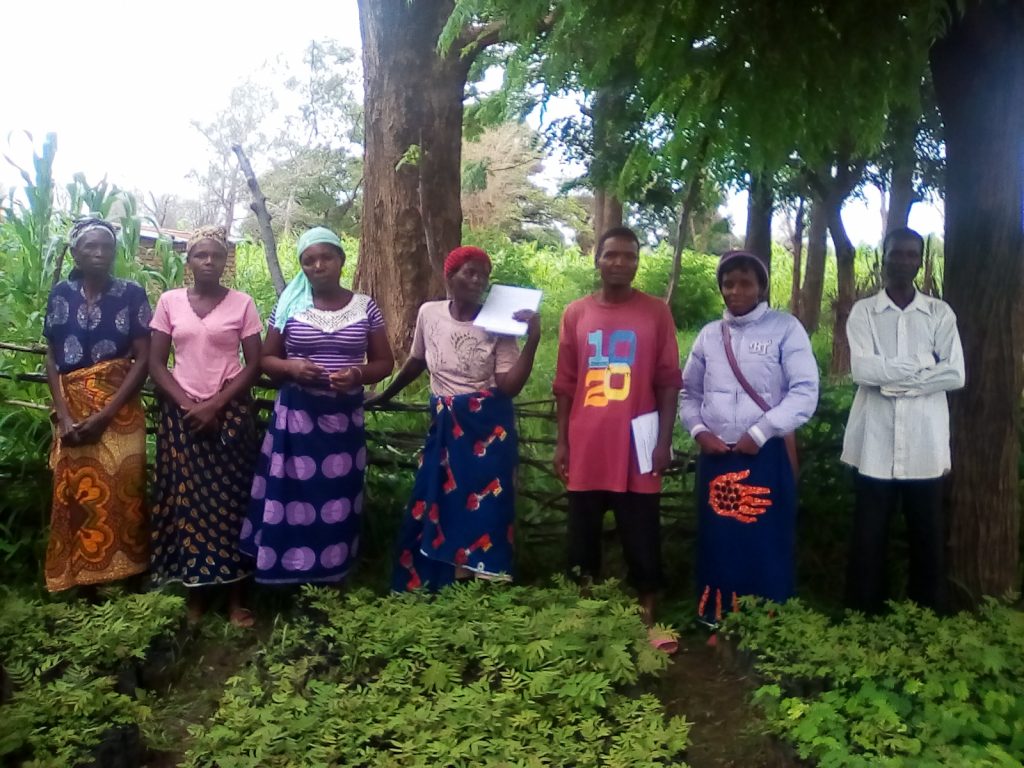
In the first year of the project, four communities and 32 primary schools have raised 43,185 tree seedlings which are ready for out planting. Some of the tree seedlings raised are cacius, albiza lameck and pine trees.
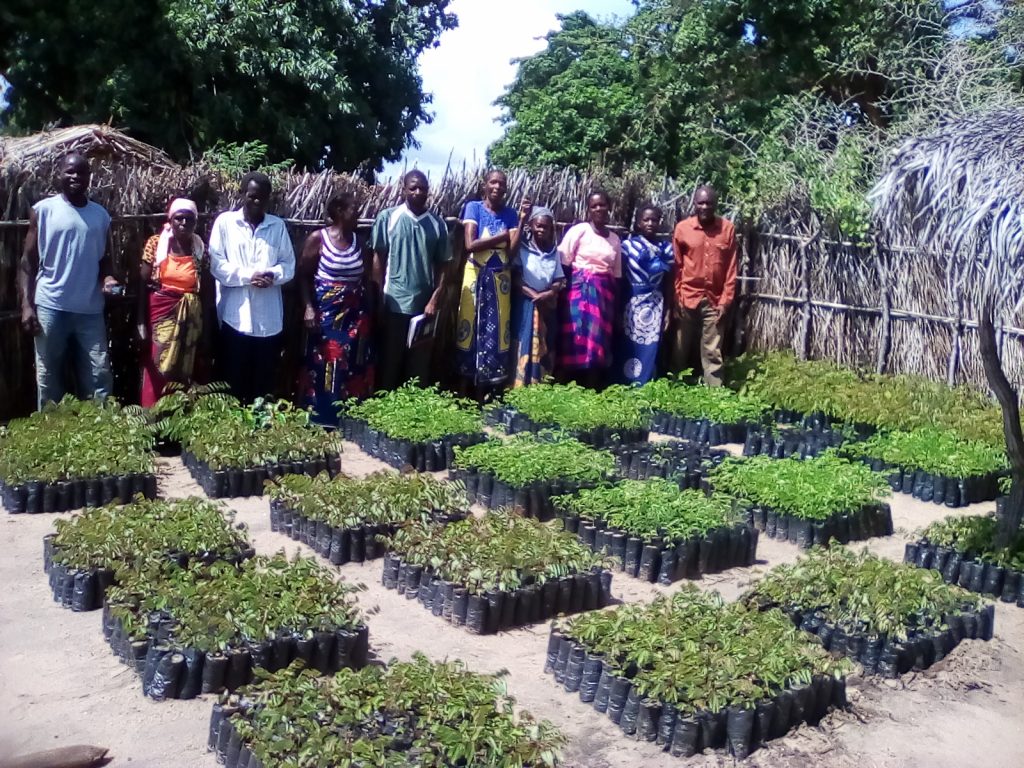
Out planting started in January and will continue up to February end. The raised tree seedlings will be planted under communal woodlots in a selected place in a village or around the targeted primary schools.
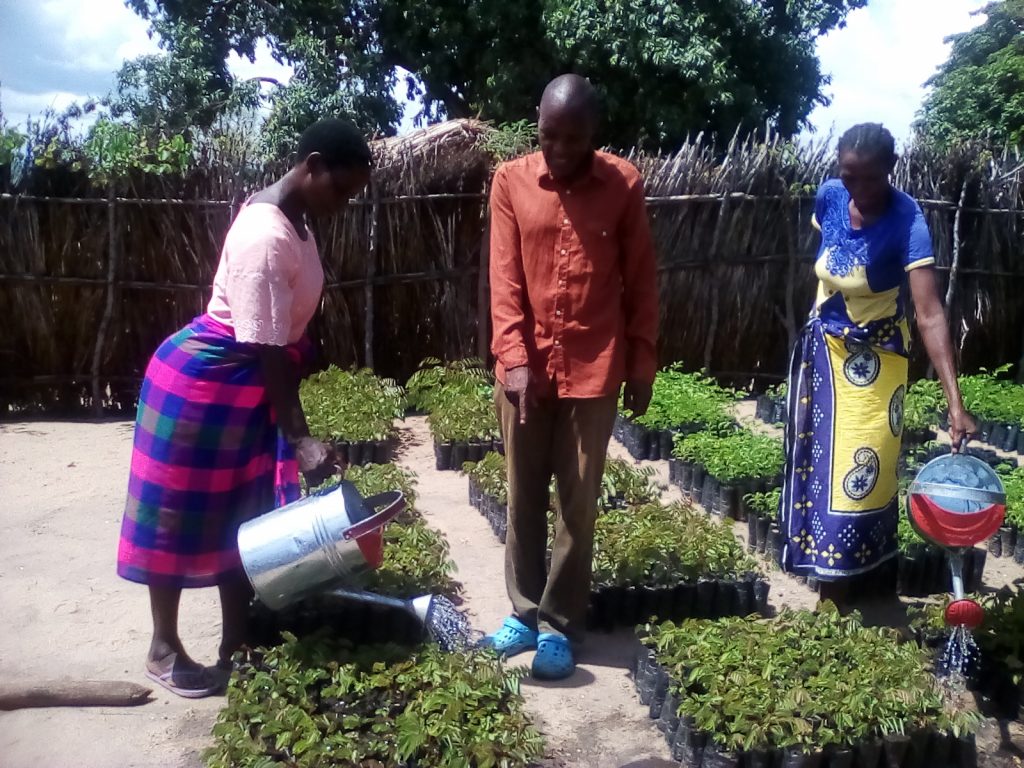
Community members’ especially targeted beneficiaries will also share part of the nursery and establish individual woodlots around their homesteads or garden boundaries.
Development Desk Using Demonstration Plots to Scale up Adoption of Climate Smart Agricultural Technologies
By Franklin Msiska (Development Desk Officer)
The Development Desk in collaboration with the Government Crops, Land Resource and Extension Departments has mounted 94 demonstrations to increase adoption of Climate Smart Agricultural (CSAs) practices under Karonga Diocese’s Integrated Rural Development Project.
Targeting 2,400 smallholder farmers, the project is implemented in Traditional Authorities Mwawulambia, Mwenemisuku and Mwenewenya in Chitipa District and Traditional Authority Kyungu in Karonga District.
This three-year project will help small scale farmers have increased annual agricultural production. In order to adapt to climate change effects small scale farmers are being trained to adopt sustainable agricultural practices which will help them increase yields even when they face extreme weather conditions such as drought during the production season.

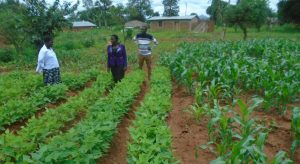
Key CSA practices promoted under the project are: planting pits, mixed cropping, use of manure, conservation agriculture (soil cover), crop rotation, agroforestry, and erosion control. The project is using the same demonstration plots also to promote technologies that would minimize the impact of climate change like drought, increased incidences of pest and disease outbreaks etc. These technologies are early maturing, disease resistance, and high yielding varieties in maize, soya beans, pigeon peas, cow peas, and sugar beans.
The demonstration plots are being used to train farmers on how they can use integrated pest management to address the current issue of fall army worms which is also largely connected to the issue of climate change.
The demonstration will also act as trials where these practices will be rotated in 8 plots per site for three years so that farmers can witness the changes taking place in each plot as a result of implementing the practices promoted by the project.
At the end of the project, which is funded by Misereor Germany, at least 65% of the targeted small scale farmers are expected to adopt and continue practicing at least three of the promoted CSA practices.
FEATURE: Development Desk Joins the Fight against Fall Armyworms
By Elijah Banda (Development Desk)
Introduction
The Development Desk of Karonga Diocese with financial support from MISEREOR is implementing a 3 years livelihood project in Karonga and Chitipa Districts. The project aims at building community resilience to the effects of climate change through various adaptation and mitigation strategies.
The Project, among other objectives, is working with farmers in use of climate smart agricultural technologies that have the capability to withstand shock due to climate change. The project has set up demonstration plots in all the 4 traditional authorities under the Project where several practices are showcased such practices are pit planting, conservation agriculture, use of manure in crop production, use of legumes to improve soil fertility and use of water and soil conservation measures for guiding against soil erosion.
Situation analysis of the agricultural production Unit component
Malawi confirmed, in February last year, the presence and attack on maize fields by fall armyworms which reduced yield by almost half. Government took measures to address the problem by buying chemicals to spray against the pest. Due to late delivery and limited access to the chemicals, not all farmers accessed the chemicals hence the pest was not effectively controlled.
During the 2017-18 farming season, Karonga ADD which covers Karonga and Chitipa Districts has reported the attack of the pest in many farmers fields. In Chitipa out of 3,954 hectares (Ha) planted with maize, 3,760 hectares have been attacked by the pest. In Karonga, out of 23,703 hectares of maize fields, 9,921 hectares have been attacked by the pest.
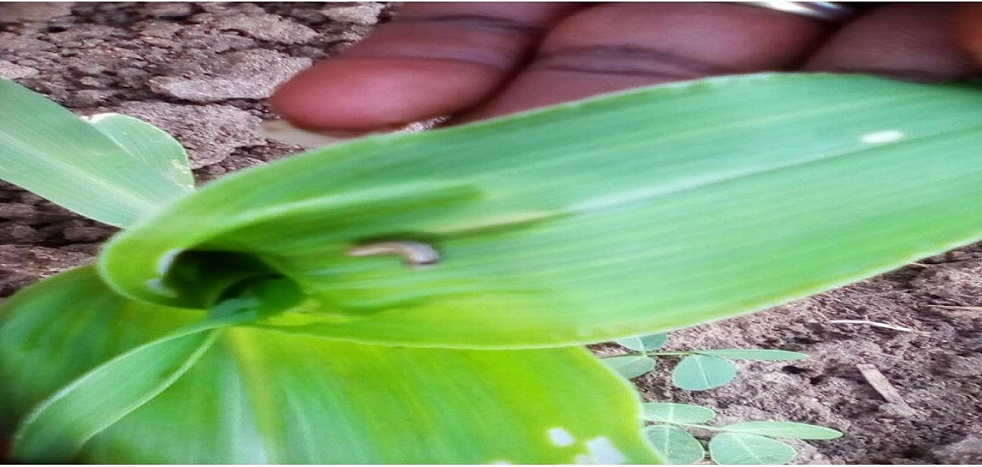
Risk associated with the Pest to the farmers
According to the Development Desk the recent attack by fall armyworms is worrisome as it is affecting performance of the set demonstration plots to adequately deliver the intended messages to the farmers. Further to this, the attack by the fall armyworms is a threat to agricultural production by smallholder farmers since the attack reduces yield by almost half. Crop production by smallholder farmers in the current farming season may be reduce if the pest damage is not contained in time.
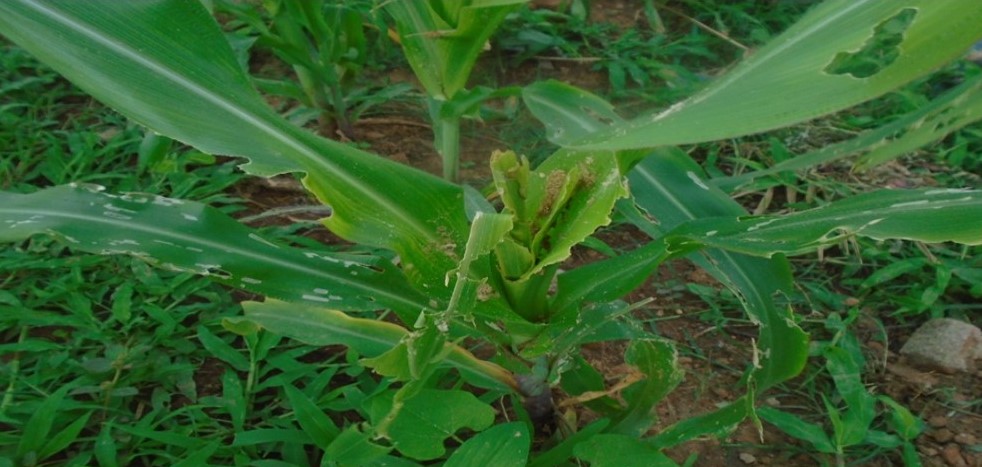
Efforts by the Development Desk towards the fight against fall army worms
The Development Desk is collaborating with Government through sensitization campaigns through the Radio and extension workers on how farmers could scout for the pest and control it. The Desk is asking farmers to report any attack by fall armyworms to Government extension workers or its Field staff for proper treatment with chemicals that are pre-positioned in extension planning areas (EPAs). Farmers and the wilder farming community are also advised on other biological and physical control measures to control the damaging pest.
Efforts by the Government towards addressing the problem of fall armyworm
Government has received and distributed 500 litres of Chlorpyrifos (Sulban) and armyworm traps to all EPAs in Karonga ADD to fight the pest. Government is further planning for installation of traps for the army worms and delivery of materials is expected from 17 to 19 January, 2018.
Development Desk of Karonga Diocese Promoting Climate Smart Agriculture
By Elijah Banda for Development Desk
For over a decade Malawi has been experiencing disasters of various degrees, mainly climate related, such as above normal rainfall, prolonged dry spells, pests and diseases, late onset of rains and short rainfall seasons. The highlighted weather related problems have had profound effects on crop production by small scale farmers and subsequent hunger among the farmers which leads to reduced participation in social economic activities of their respective communities.
In view of these challenges Karonga-Diocese through its Development Desk is implementing a 3 year livelihood project which is engaging small scale farmers in agricultural practices that would withstand the shocks of the climatic variations. In pursuit of this the Development Desk has facilitated the establishment of demonstration sites in the 4 traditional authorities it is implementing the project. The demo plots act as farmers’ schools where various practices are showcased and farmers are given a chance to see and adopt a technology they feel best for their area.
On 3rd January 2018 the Development Desk- Desk Officer and Project Officer visited the set demo plots to appreciate how the work is going on and evaluate the farmer’s understanding of the initiative. In his remarks after visiting Titukulane Farmers Club in Lupembe-Karonga the Development Desk- Desk Officer thanked the farmers for the hard work shown towards mounting the demo plots and encouraged them to start practicing the technologies in their respective fields.
These technologies, he said, if scaled up would contribute to increased food production in the wake of these climate related shocks. He further asked the farmers to continue taking good care of the demo plots and their respective gardens by guarding against pests and diseases to report to extension workers for the area once they spot a strange disease.
In his remarks, the Chairperson of the group thanked Karonga Diocese for the project which he said would help to change mindset of many farmers in the area who still cling to old farming methods which are challenged by climate related shocks and affecting agricultural production.
Karonga Diocese Development Desk is implementing the project with financial assistance from MISEREOR Germany.
Development Desk of Karonga Diocese Launches Rural Livelihood Project
By Elijah Banda
Climate change, as characterized by dry spell, flooding, short rainfall seasons with erratic patterns, is causing a decline in food production by smallholder farmers. Further, the ever increasing national population is exerting putting pressure on natural resources. To mitigate this, on 1st October, 2017, the Development Desk of Karonga Diocese launched a project aimed at building community resilience to the effects of Climate Change and population growth.
This multimillion Kwacha ‘Karonga and Chitipa Integrated Rural Development Project’ targets communities in the areas of Paramount Chief Kyungu in Karonga District and Mwabulambiya, Mwenemisuku and Mwenewenya in Chitipa District. The project is being implemented with financial assistance from MISEREOR Germany.
The project will engage 2400 households to improve natural resource management, annual food production, and household income. The project will also empower 160 young people economically through informal vocation training.
Speaking during the District Executive Committee (DEC) project briefing in Chitipa, the District Commissioner for Chitipa District, Grace Chirwa, appreciated the role Karonga Diocese is playing in complementing government’s efforts in improving people’s livelihoods. She further urged the Diocese to consider more interventions that would empower unemployed youths. These, she said, if not well managed end up engaging in promiscuous behavior.
During the meeting, DEC members reviewed and technically appraised the project. They pointed out some areas which needed further consideration and possible amendment.
Addressing DEC members after the approval of the project, Development Desk Project Officer-Elijah Banda expressed a word of gratitude to the District Commissioner for tirelessly supporting Karonga Diocese’s development initiatives and DEC members for their technical input.
“I thank you all for the technical advice towards the perfection of the project. Be assured these will be taken into consideration. Since the Development Desk will also work together with relevant government sectors, then most of the concerns raised will be addressed in the actual implementation of the project.” He said.
This is a three-year project and it runs from October 2017 to September 2020 using a community approach.
Karonga Diocese Empowers PDRR Committee Members at St Mathias Parish
Karonga Diocese through its Development Desk organized a refresher training in June, 2017 at St Mathias Parish in traditional authority Mwenemisiku in Chitipa District. The training aimed at building the capacity of Parish Disaster Risk Reduction (PDRR) Committee members at Parish level. The role of PDRR teams is to respond to disasters through provision of guidance and direction when disasters occur. The team was taken through several session such as; what is a disaster?, how to communicate when a disaster happen?, how to collect and document data after a disaster has occurred?. The training was graced by the Parish Priest Fr Bernard Silungwe who thanked the Diocese for organizing the refresher training.
Development Desk of Karonga Diocese Supports Flood Victims with Construction Materials

Karonga Diocese through its Development Desk has assisted communities in Karonga District with construction materials to people who were affected by floods in the rain season of 2016/2017. Karonga District received fairly normal to above normal rainfall amounts. The district received persistent heavy rains in most areas which eventually led to increased flash floods and water logging leading to loss of lives, injuries, massive damage to houses, household property and infrastructure. Due to this, some households were displaced and they needed to be assisted with construction material for them to have a permanent shelter.
The Development Desk with funding from Catholic Relief Services assisted the affected household with Iron sheets, Cement, Door frames, Window frames, Solignum gallons and Nails. In total 316 households have been assisted.
One of the targeted houses that was affected by both heavy rains and cyclones is Mr Kalambo in Village Head Shemu Mwakasungula under Group Village Head Mweniyumba of Kyungu.

Karonga CCJP enhances Revenue Collection in Karonga District Council

Karonga CCJP has, through the CALGA project, been working with district council of Chitipa and Karonga on improving collection and management of locally generated revenues. These are already bearing fruits. During a review meeting with council members, revenue collectors market masters, market chairperson, ward councilors and finance committee held on Friday, June 23 at Viphya in Karonga district to review the current status of the locally generated revenue by the Karonga District Council from its markets within the five zones. It has been revealed that some improvements have been recorded and this has been largely due to the establishment of the revenue task force which closely monitors revenue collectors in zone.
Council members said that at moment, the council collects over MK500,000 per month from its markets unlike in the past when there was no taskforce as such total revenue collection was slightly lower. Despite some improvement, it was also revealed that the finance committee has not done enough work to civic educate vendors, chiefs and other members on importance paying revenue as there is some resistance from chiefs to allow council to be collecting revenue in such markets. The team among other resolutions established a task force to lobby with chiefs and also to embark in civic education market users on the importance of paying revenue The review meeting was orchestrated by the Catholic Commission for Justice and Peace (CCJP) through its Citizen Action in Local Government Accountability (CALGA) with financial support from Tilitonse Fund through Danish Church Aid (DCA)

